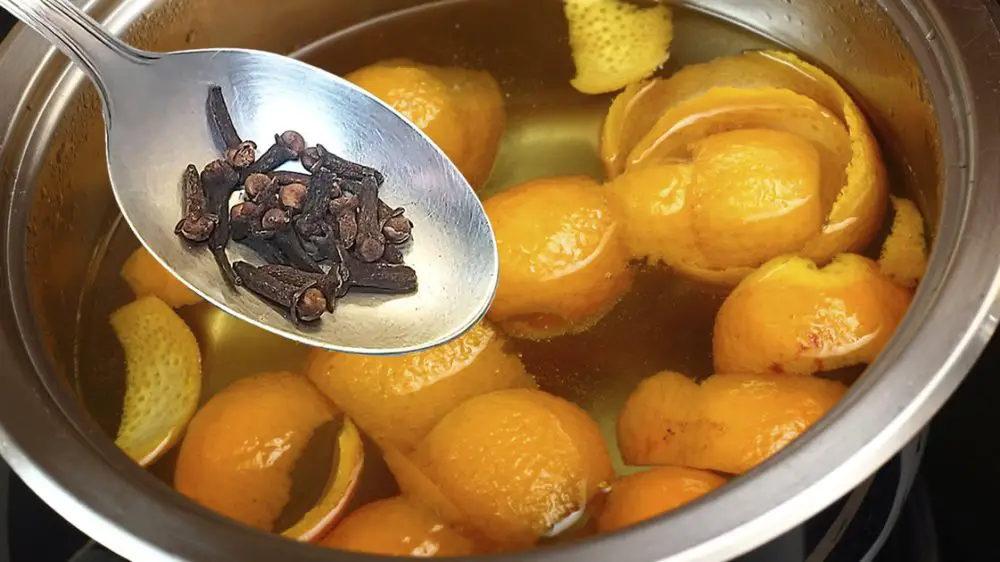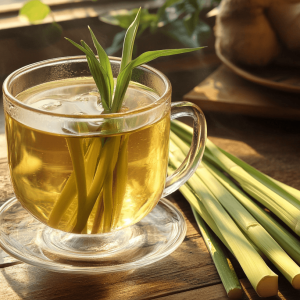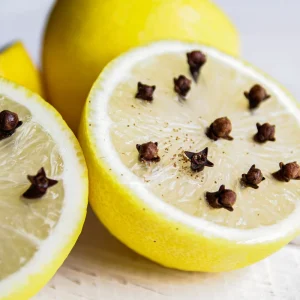
For centuries, the simple yet effective practice of boiling orange peels with cloves has been passed down through generations. What might seem like a quaint ritual is actually rooted in practicality, offering a range of benefits that enhance daily life. From its aromatic appeal to its natural health and cleaning properties, this age-old method remains relevant even in today’s modern world.
1. The Origins of the Practice
The tradition of boiling orange peels and cloves has its roots in homes where nothing went to waste. Grandmothers found ingenious ways to use every part of food items, and citrus peels were no exception. These peels, combined with the warm, spicy aroma of cloves, were used to refresh homes, repel insects, and even support health. This simple practice was a cost-effective and natural solution to many common household needs.
2. A Natural Air Freshener
One of the most popular reasons for boiling orange peels with cloves is its ability to fill the home with a delightful, cozy scent. As the mixture simmers on the stove, it releases a sweet and spicy aroma that neutralizes odors and creates a welcoming atmosphere. Unlike synthetic air fresheners, this natural method is free from chemicals, making it a healthier choice for families.
To prepare, simply place orange peels and a handful of cloves in a pot of water, bring it to a boil, and let it simmer. For added depth, you can include cinnamon sticks, star anise, or a splash of vanilla extract.
3. A Natural Insect Repellent
The combination of orange peels and cloves is also an effective, eco-friendly way to keep insects at bay. Citrus peels contain limonene, a compound known to repel pests like mosquitoes and ants. Similarly, cloves have eugenol, which is effective against flies and other bugs. Boiling these ingredients not only releases their aromatic compounds but also helps to ward off unwanted insects naturally.
For added effect, you can leave the cooled mixture in bowls around the house or apply it as a spray in areas prone to pests.
4. Health and Wellness Benefits
The health benefits of orange peels and cloves make this practice more than just a household trick. Orange peels are rich in antioxidants, including flavonoids and vitamin C, which support the immune system and fight inflammation. Cloves, on the other hand, are known for their antimicrobial and soothing properties.
While boiling this mixture is not intended for direct consumption, inhaling the steam can provide mild relief from congestion and colds. The warm, citrusy aroma can also uplift the mood, making it a natural remedy for stress and fatigue.
5. A Cleaning Aid for the Home
The simmered water from orange peels and cloves can be repurposed as a natural cleaner. The citrus oils have antibacterial properties and can help cut through grease, while cloves add an antimicrobial boost. Use the cooled liquid to clean countertops, wipe down surfaces, or freshen up drains.
For an extra cleaning boost, you can steep the mixture longer to intensify its potency or mix it with vinegar for an all-purpose cleaner.
6. Eco-Friendly and Budget-Conscious
Incorporating this practice into your home is a testament to sustainable living. Instead of discarding orange peels, they are repurposed, reducing waste. Similarly, cloves are an affordable pantry staple that goes a long way. This makes it a budget-friendly alternative to store-bought air fresheners, cleaners, and pest repellents.
7. A Touch of Nostalgia
For many, the act of boiling orange peels with cloves is more than just a practical solution—it’s a sentimental ritual. The aroma evokes memories of simpler times, family gatherings, and warm kitchens filled with love. Embracing this tradition is a way to honor the wisdom of previous generations and keep their practices alive.
Conclusion
Boiling orange peels with cloves is a timeless tradition that continues to offer practical and emotional benefits. Whether you’re looking to refresh your home, repel pests, support wellness, or simply enjoy a touch of nostalgia, this practice remains as useful today as it was in our grandmothers’ time. Simple, natural, and effective, it’s a small act that brings big rewards.
Why not try it today and rediscover the charm of this classic remedy?






